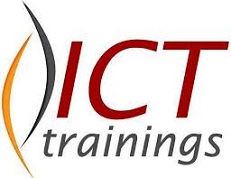The Project Management Professional Certification, or PMP certification, is a prestigious acknowledgment from the Project Management Institute (PMI) to professionals who fulfill specific educational and experiential criteria. Unlike many other certifications, obtaining a PMP certificate involves a meticulous process, ensuring that certified individuals are well-equipped to navigate the complex landscape of project management. To embark on the journey toward PMP certification, professionals need to meet stringent prerequisites before applying. There are two primary eligibility criteria: either accumulate 7,500 hours of project management experience and 35 hours of relevant education or possess a four-year degree with 4,500 hours of project leadership experience and 35 hours of project management training. The application process is initiated through the PMI website, where applicants submit personal information and fulfill an application fee requirement. The crux of the certification process lies in the comprehensive PMP exam, a rigorous test designed to evaluate a candidate’s mastery of project management principles. The exam comprises five sections covering project initiation, planning, execution, monitoring, and closing. Comprising 200 multiple-choice questions, the examination spans various topics, including ethical considerations and conflict resolution within project management scenarios. PMP-certified professionals must deeply understand standard project management concepts, challenges, and terminology. This expertise is not confined to a specific industry but is designed to be versatile, allowing certified individuals to navigate diverse scenarios easily. The certification signifies theoretical knowledge and practical experience in project management. Achieving PMP certification is not the end of the road; it marks the beginning of a commitment to continuous improvement. To retain their designation, certificate holders must accrue 60 professional development units (PDUs) within each three-year cycle. PDUs can be earned through various activities such as public speaking engagements, active project management roles, and contributing articles for publication. While PMP certification is not mandatory for most professions, it holds substantial value in enhancing credibility and strengthening one’s resume. Project management skills are universally applicable, making PMP certification a valuable asset in almost any business setting. If you aspire to specialize in project management or leadership roles, meeting the PMP requirements could be a strategic move for advancing your career. In conclusion, the Project Management Professional Certification is not just a title; it’s a testament to a professional’s commitment to excellence in project management. Beyond the accolade, PMP certification opens doors to a global community of professionals, offering networking opportunities and recognition on a worldwide scale. For those ready to invest time and effort into honing their project management skills, obtaining a PMP certificate is a significant step toward professional growth and recognition.The Path to PMP Certification
The PMP Exam: A Rigorous Assessment
What a PMP Certified Professional Should Know
Continuing the Journey: Maintaining Certification
Is PMP Certification Right for You?
Conclusion

